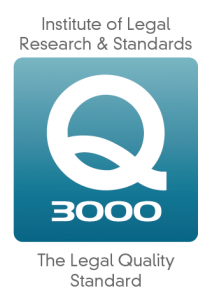At Catherine Allison & Co, we believe a professionally drafted Will is an essential element of sound financial planning for every adult, regardless of age or the size of their estate. It is the only way to guarantee your lifetime intentions are carried out after death.
Our team offers the valuable advantage of advising on and administering estates with assets located in Ireland, Northern Ireland, England, and Wales. We handle all aspects of the process, including:
- Applying to the relevant court offices for the Grant of Probate or Letters of Administration in each jurisdiction.
- Dealing with all assets, liabilities, and tax matters
- Ensuring the lawful and timely distribution of the estate to the entitled beneficiaries.
- Protecting Your Intentions: A Will ensures your property, assets, and personal possessions are distributed exactly as you wish, providing certainty for your loved ones.
- Providing for Dependents: It is particularly vital for those with children or dependents, allowing you to appoint guardians and make appropriate financial provisions.
- Tax Efficiency: We use the Will drafting process as a crucial opportunity to provide advice on minimizing potential Capital Acquisitions Tax (CAT) liability (inheritance tax) and reducing other administrative expenses associated with dying intestate.
- Avoiding Intestacy: Dying without a Will subjects your estate to rigid legal rules, often leading to delays, increased costs, and distribution outcomes that may not reflect your true wishes.
Probate, Administration & Litigation
When a death occurs, we provide sensitive, efficient, and expert legal support to executors and beneficiaries to administer the estate.
- Rights and Obligations: Advising Executors and beneficiaries regarding their legal duties and entitlements under the laws of the relevant jurisdiction.
- Challenging a Will: Initiating or defending challenges based on undue influence, capacity issues, or incorrect execution.
- Dependant Claims: Advising on claims by dependents alleging a failure by the deceased to make proper provision for them in the Will, such as claims under Section 117 of the Succession Act (Ireland) or the Inheritance Act (England and Wales).
FREQUENTLY ASKED QUESTIONS
- Do I need a separate Will for assets in different jurisdictions (e.g., Ireland and England)?
Ideally, you should have one primary Will drafted by a solicitor with multi-jurisdictional experience. This Will can cover assets in all countries, provided it is drafted carefully using clauses that ensure it is validly executed under the laws of each relevant jurisdiction and avoids unintentionally revoking a pre-existing Will. Occasionally, a separate “limited” Will may be recommended for specific foreign assets to streamline probate abroad, but this requires precise coordination.
- If I get married, does my existing Will become invalid?
In most jurisdictions, including Ireland, England, and Wales, marriage or entering into a civil partnership automatically revokes (cancels) any Will you made previously, unless the Will was made specifically in contemplation of that marriage. It is critical to make a new Will immediately after marriage.
- What happens if I die without a Will (Intestacy)?
If you die intestate, your assets will be distributed according to the fixed rules of succession in the relevant jurisdiction. These rules dictate who inherits and in what proportion.
- What is Capital Acquisitions Tax (CAT), and how is it reduced?
Our solicitors advise on structuring your Will to best utilise available tax thresholds and reliefs to legally minimise the overall tax liability for your loved ones.
- What is the difference between Probate and Letters of Administration?
Probate is the legal process used when the deceased left a valid Will. The executor applies to the court for a Grant of Probate. Letters of Administration is the legal process used when the deceased died without a Will (intestate). A close relative applies to the court for a Grant of Letters of Administration.
- How do you handle an estate that has property in Ireland and a bank account in England?
We coordinate the entire process. We typically apply for the main Grant (e.g., the Grant of Probate in Ireland) and then use the legal mechanism of “resealing” that Grant in the second jurisdiction (England and Wales) or obtaining a “domiciliary” Grant there. This expertise ensures all assets are legally administered without unnecessary duplication or delay across borders.
- As an Executor, what are my main responsibilities?
Your responsibilities are significant and include: securing and valuing all assets, settling any debts or taxes, applying for the Grant (of Probate or Administration), keeping detailed financial records, and finally, distributing the remaining estate according to the Will or intestacy rules. We guide Executors through every step to ensure they comply with their strict legal duties.
- Can a Will be challenged in court?
Yes, a Will can be challenged, but only on specific legal grounds. These usually include:
-
- Lack of testamentary capacity (the deceased did not understand what they were signing).
- Undue influence (the deceased was coerced into making the Will).
- Lack of due execution (the Will was not signed and witnessed correctly).
- Lack of proper provision for a spouse, civil partner, or child (claims under relevant succession legislation).


